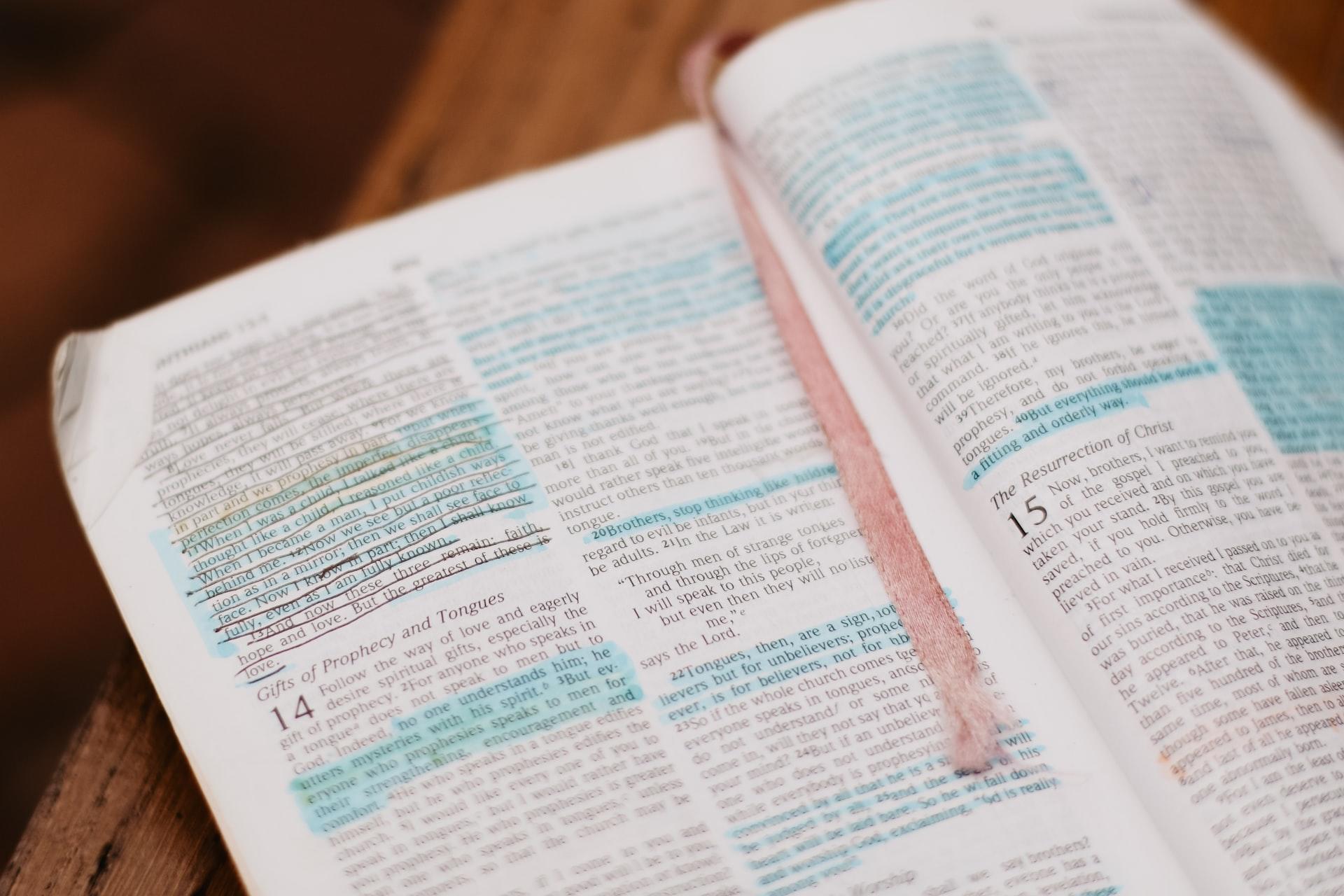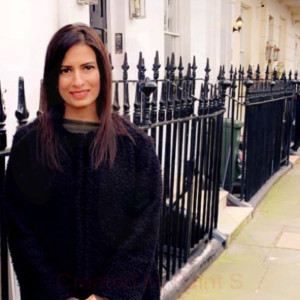Chapters
Religious Education (RE) is a compulsory part of schools' curriculum in the UK. Many people regard it as important because it promotes pupils' spiritual, moral, social, cultural, mental and physical development. Should you choose to sit GCSE Religious Studies, you'll go beyond what you learned from your school's mandatory curriculum. You'll explore these religions in-depth:
- Christianity
- Catholic Christianity - is not the same as Christianity
- Judaism
- Islam
- Sikhism
- Buddhism
- Hinduism
You'll also examine religion in the context of societies and family life. You'll explore how religion affects social justice and human rights worldwide. You'll ponder whether religion is an agent of peace, a provoker of violence, or both. These and all the other topics you'll study in GSE Religious Studies impact everyday lives worldwide. This GCSE is not for the lighthearted.
Schools have to teach RE. Parents may withdraw their children for all or part of the curriculum (but doing so rather defeats the purpose of this compulsory component). Pupils may shrink once they're 18. This blog post aims to show students taking GCSE Religious Studies that this is a vital subject with real-world implications. So let's see what this course is about before we review the best resource websites.

What You'll Take Away From GCSE Religious Education
For a long time, GCSEs have been getting a bad rap. First, it was because the exam structures were too convoluted. And then, because they were all about rote learning and memorisation. You could easily ace the exam if you had a head for facts. Things got worse with accusations of teaching to the test. And now, they're under fire because there's no point in sitting school-leaving exams when students must stay in school for two more years.

Some of these concerns may be legitimate, but the last one is slightly off. Year 11 students have a couple of options. They may seek an apprenticeship. They could do volunteer or part-time work while taking classes part-time, too. Admittedly, the easiest route is heading to a Sixth Form for two more years of academic learning. This structure is more in line with other advanced nations' three-tier educational systems. We have to stop calling GCSEs school-leaving exams.
So what do those additional two years in school give you? First, the chance to develop transferable skills like critical thinking and analytical reasoning - skills you'll create in spades as you go through the GCSE Religious Studies curriculum. You can explore any subject of interest on offer at your school. You might go for GCSE Spanish or challenge your artistic flair in a design course.
Though you'd be hard-pressed to find these qualities listed on your Religious Studies syllabus, you'll learn introspection, tolerance and empathy. The more you know about other people's belief systems, the more you'll see how closely all beliefs are related. You'll recognise that they all deliver the same message of peace, kindness and charity. And you'll come to see how genuine, dogmatic belief can bring tragedy.
In no way does GCSE Religious Studies resemble the archetypal bible studies so many of us partook of when we were younger. This course turns you into a cultural anthropologist as you explore Abrahamic and Indian beliefs. It touches on all the bases you need to understand people from all walks of life, an ideal characteristic if you want a social work or civil service career.
Eight GCSE Religious Studies Resources
Now that you have an idea of the level of education you're in for, it's time to lay out all the resources you can tap to excel in your GCSE Religious Studies course and exam. Some of them have broad applications. They suit every GCSE subject, from Design and Technology to Spanish classes. Others are specific to the Religious Education curriculum.
GCSE Bitesize Religious Education
You know about Bitesize, of course (don't you?). For the GCSE Religious Studies, Bitesize runs through various religions' tenets. You'll study the principles of Christianity, Hinduism, Islam, Judaism and Sikhism. These materials will provide you with an overview of the main topics and online tests.
The tests not only indicate wrong and correct answers but also explain why an answer is wrong. All too often, such quizzes only return the correct answer, so this feature is beneficial. Remember that this subject delves into definitions and theories that can be hard to understand.
This resource discusses the basics of each religion. It analyses how beliefs affect our views and ideas about important issues, such as gender roles and who makes up the family unit. You'll also study religion in context with war and peace, poverty and wealth, prejudice and discrimination and the sanctity of life.
Past Papers and Marking Schemes
Do you know yet whether you'll sit AQA or Edexcel exams? They don't differ wildly from each other - they both touch on many of the same points. Still, there are some differences, so it's best to download the past papers for the exam you'll sit. Or is it?
Most students only use past papers and marking schemes as mock exams and verifications of their answers. They also consider their exam's structure and how the questions are written. But if you only look at one exam board's papers, that's like looking at a single tree and disregarding the rest of the forest.
GCSE exams aren't just about testing your knowledge in discrete subjects. They also test your intuition, often by asking the same question differently. Detecting the questions' intent is the trick to success in your GCSEs, not just for your Religious Studies exam.
That's why it pays for you to review other exam boards' papers. They may all test you on the same knowledge, but how they push you and formulate their queries points towards the desired response. You'll likely need a bit of training to spot intent, but, in the end, that skill will prove invaluable on your exams.
Religious Festivals
This helpful site, aimed at children aged 11 to 16, covers the most important religious festivals of Buddhism, Christianity, Hinduism, Islam, Judaism, and Sikhism. The site introduces each religion and discusses specific traditions and celebrations for each belief system. The 'Questions Answered' section is a convenient component. It addresses exciting questions like 'Why did God allow his Son, Jesus Christ, to be killed?' or 'What do Christianity and Judaism have in common?'.

Quizlet
This learning platform may be GCSE revision's best-kept secret. Quizlet study sets for every GCSE subject, including Physical Education. It offers several study modes, learning, and self-tests among them. Besides those quizzes - the feature they derive their name from, flashcards are the main selling point.
A practical Quizlet revision session goes like this: first, you review subject-specific keywords and their definitions. They are listed side by side, so you have everything at a glance. Switch to the flashcard function once you feel you've mastered that information. You may choose whether the keyword or the definition appears. When you're ready, take the test.
Unfortunately, Quizlet only shows the correct answers for those you got wrong. Unlike the Bitesize sample tests, Quizlet doesn't tell you where you went wrong. But they have an awesome matching game to make your revision fun.
A final note on Quizlet's Religious Studies study sets: they are geared towards the Edexcel Religious Studies exam. But that shouldn't matter. At pointed out above, exam boards all test you on the same knowledge; only the question formulations are different. And besides, if you go over all of the exam boards' papers - not just those for the exam you'll sit, you'll gain a broader perspective of your exams.
Student Life Festivals & Events
This resource approaches the subject of festivals and events by season, informing students of 'What's On' on various days of the year. The site is not solely focused on religious festivals. It also examines critical yearly events such as Space Day or Environment Day. GCSE Religious Education students will find the Easter, Ramadan, and Rosh Hashanah sections and more. The extra information is fun and exciting, but the Religious Holidays sections will be helpful for your revision.
Class Clips – RE
This resource features a host of video material you can view via streaming in class or at home. You may have to introduce your teacher to the platform for the classroom streaming option. The material is an excellent source of information on everything from ethics and relationships to religion and science, inspirational people and peace and conflict.
Check out stories on issues like charity with dignity, Hinduism and current environmental problems. You may also learn about present remembrances of the Holocaust. The site invites debate on topics relevant to our times, such as whether religion is a fair game for comedy and has outlived its usefulness. It also highlights situations brought about by religious conflict - for instance, a nurse was suspended for offering a prayer.
Get Revising
This resource is a collection of mind maps, games, revision material and puzzles, all different users' uploads. Since content is continually being uploaded, the site is not neatly divided into categories. You might need more surfing time to find what you're looking for.
It is worthwhile to poke around and see what you can find, though. It contains a wealth of hidden gems that have taken hours of preparation to complete. If you happen to be enrolled in GCSE Art and Design, you may find a few scrapbooks and portfolios to turn to for inspiration.
To advance your RE studies, you can take the fun crossword that tests students on essential aspects of Siddhartha's life. Where did he preach his first sermon? Who did he meet on the road to enlightenment? Where did he die? Note that not everything on this site is free to access. Premium content will cost you less than £5 a month, but there is plenty of free content.
TES Connect
This resource may be aimed at teachers, but all it takes is a short registration process for all users to have access. Once you've registered, you can sift through a host of notes, lesson plans, film clips, resource sheets, downloadable photos and more. This site's RE material takes a deep dive into particular issues.
You'll be privy to talking points about themes such as what constitutes Christian aid, the nature of poverty and examples of emergency and long-term assistance provided by religious groups. Remember, though, that these pages are primarily directed at teachers. The language is likely loftier than other revision tools mentioned in this article. Also, not all talking points teachers bring up in class will feature on the exam. Thus, the best way to use this resource is with the past papers you downloaded.

Tips for Effective GCSE Religion Revision
Throughout our discussion, we've included tips to help you ace your Religious Studies exam. Let's gather them all in an easy-to-reference guide to close out. That way, you can copy them (or screenshot them) and keep them as a handy reference.
Understand the GCSE Religious Studies specification. Treat your exam board's specification papers as roadmaps to your revision efforts. After all, you can't reach your goal (destination) without knowing how to get there.
Train yourself to recognise the exam questions' intent. A glance at any past exam's marking scheme proves that students often respond to questions' superficial meaning without addressing their more profound points. Failing to address intent will result in lower marks.
Understand your exam's format. For instance, AQA's exam is linear. That means you'll first answer relatively easy, low-point questions. They build you up for longer-answer, higher-point questions. This structure may imply that you'll see a preview of more complex questions early in the exam. You are understanding your exam's format ties in with recognising the questions' intent. It will also help you estimate how much time you should spend on each question.
As the GCSE Religious Studies subject is so broad, prepare at least three specific examples for each specification. For instance, you might answer a simple question like "How do Christians worship?" with "Christians don't all worship the same way.", "Some Christians are more secular in their worship" and "Christians vary in their degree of observance".
We hope that you have found this helpful article, and please feel free to add comments to tell us about what you think are equally good Religious Studies resource websites that you have come across on the internet.
While GCSE French and GCSE Religion are separate subjects, learning French can provide students with valuable linguistic skills that may be beneficial when studying religious texts or engaging with diverse cultural perspectives.
















